How Playing Guitar Brought Yvette Young Back Into Herself
This interview originally appeared in the print version of She Shreds Issue #15, which was released in July, 2018.
Encouraged by her parents to commit herself to classical music at a very young age, Yvette Young found the growing pressures of competitive piano playing both stifling to her creativity and taxing on her health. In desperate need of a new, more healing relationship to music, and through her increasing love for post-rock, Young taught herself to play guitar. This ultimately led her on one of the most fulfilling journeys of her life.
Young’s math rock band, Covet, will release their sophomore album, Effloresce, this summer on Triple Crown Records. The title, a word that means to blossom or flower, suggests that the band, and perhaps Young herself, have reached a pivotal moment in both creative and personal development. On a sunny spring day in the Japantown of San Jose, California, She Shreds spoke with Young about her classical upbringing, tumultuous journey with performing, and how they both inform how she relates to music today.
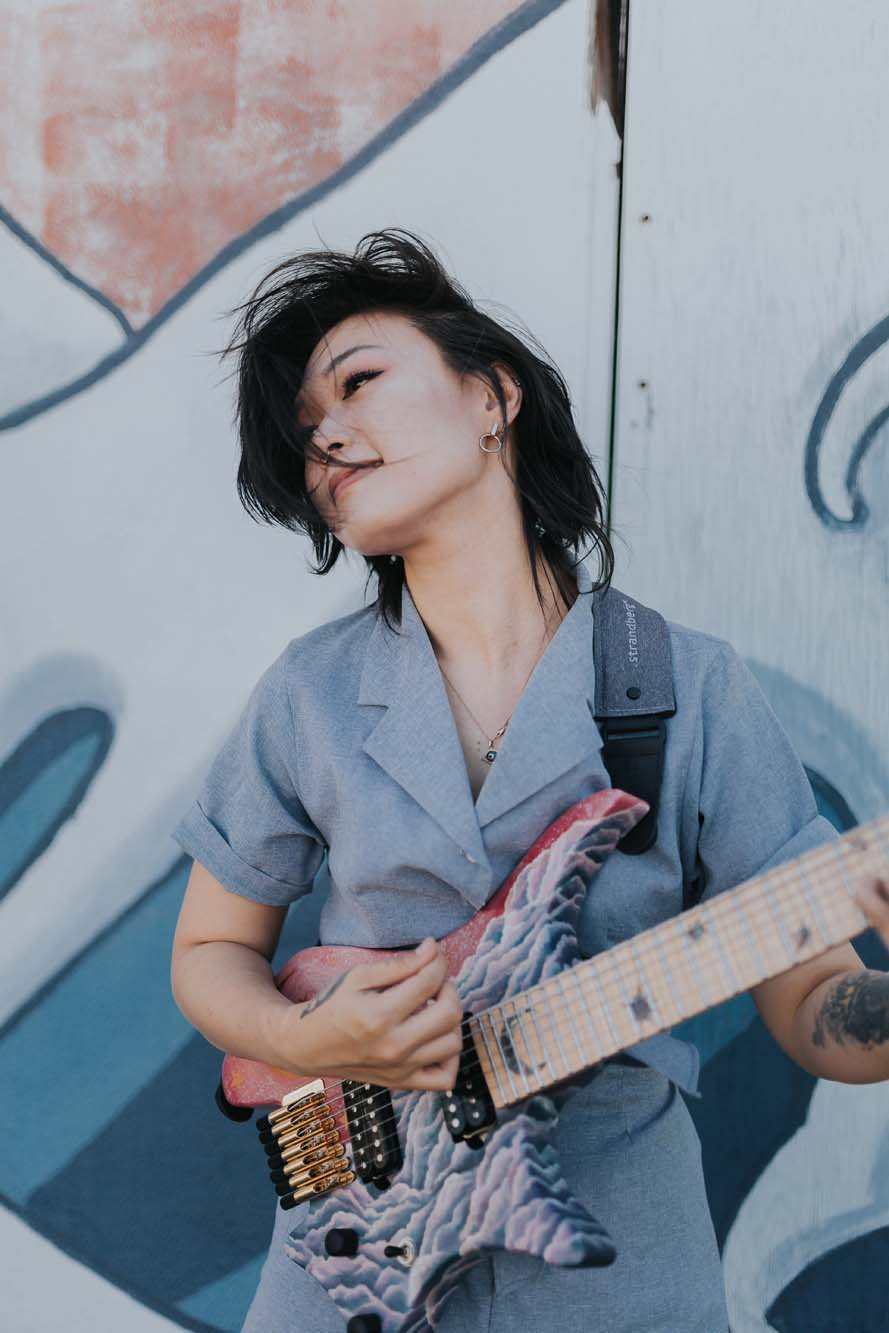
She Shreds: Can you talk about your various music projects?
Yvette Young: I’m the primary writer in Covet and play six- and seven-string guitar. I also have my solo project, which is acoustic. I have a solo piano and violin project, too, that’s like movie soundtrack music.
It’s interesting that you also write movie soundtrack music because a lot of the new Covet album is so atmospheric.
I really want to write music that fuses more intricate guitar work with post-rock, because my gripe with some post-rock is it just stays in the same place for too long. But I love the tones; they’re so lush. I’m really inspired by that and post-metal, some grunge, indie—I like everything. I just want to find a way to fuse all my favorite genres together.
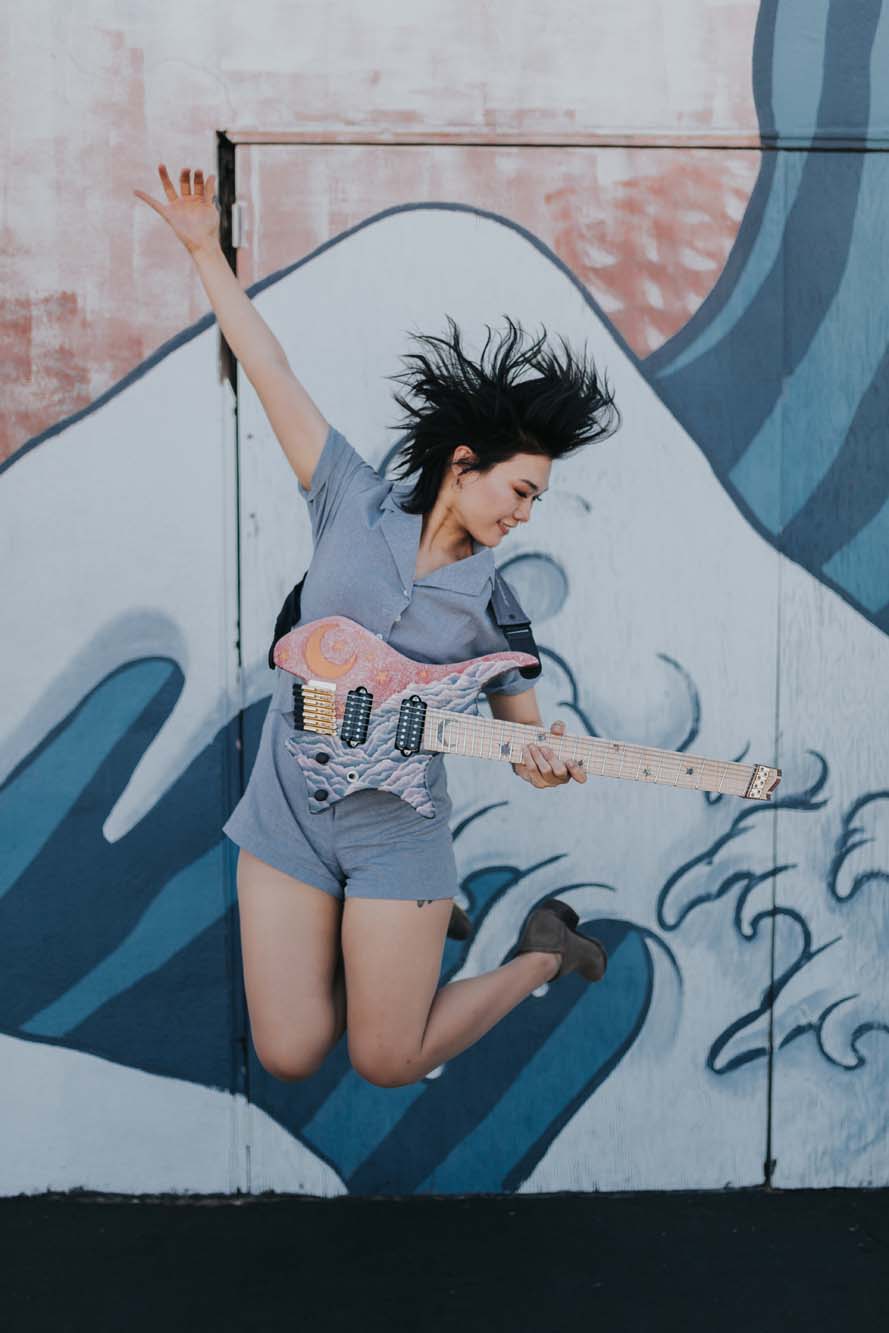
What was your experience with coming from a classically musical family, and how has that influenced your relationship to music?
Initially I started classical piano and violin, and my parents had me join two orchestras: high school orchestra and the California Youth Symphony. It wasn’t really my passion. My family was pushing me to do competitive piano; I don’t think music should be a sport that you compete against other people. It’s too subjective. That’s not where I get my joy, and at the time it was a lot of pressure for a kid. So I hated music for a long time. I got sick for a while because of the pressure, an eating disorder, because when you’re a perfectionist sometimes it turns into other things. And for me that was food and exercise; I lost a ton of weight. I landed myself in the hospital and that’s where I started teaching myself guitar.
How old were you at the time?
I was 16 or 17. I didn’t start taking guitar seriously until I was 18, when I was cured of the eating disorder. While I was in the hospital I turned to art and music; I fell back in love with it. It gave me something I could control that was not my appearance, not superficial. It made me feel really powerful to teach myself a new skill, gave me self-worth, and helped me have a healthier relationship with music.
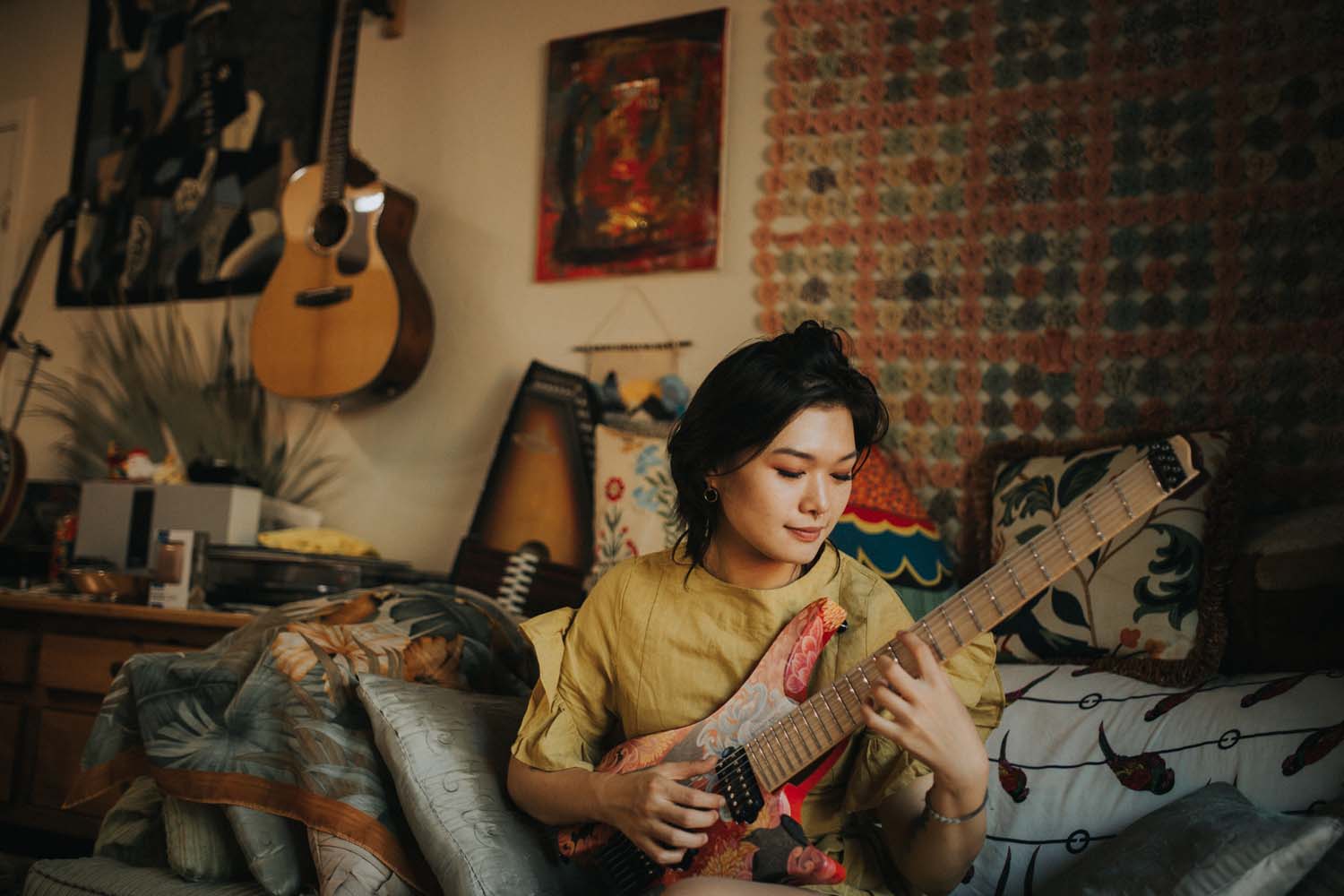
How did your family react to your new passion for music?
They were scared at first. It’s a bit of a culture shock, not to mention my family is pretty religious, so there’s a certain connotation associated with playing this kind of music. Like, “the devil’s music.” They thought, “You went to college, you got a degree. It’s such a waste.” At first they worried about how I was going to support myself; I was teaching art to kids at the time while doing band stuff. Pretty soon my schedule got so booked there was no point in teaching because I kept having to hire a substitute. Eventually I made the full shift to musician, and now I think my parents are relaxed. I’ve proved that I’m not a fuck up [laughs]. Growing up, we never saw eye-to-eye on music. They would always say I’m wasted potential because I could have done the classical thing. My cousin, Clara Young, is a pianist and she’s amazing, but I wanted to try something different.
Do you feel like you were compared to her?
That’s why I’m so adverse to the idea of competition. Even now, people try to pit me against other women guitarists. Why do that? We are all doing different things. When people try to compare each other and suppress each other with music, it just reminds me of my childhood. It takes the fun out of it.
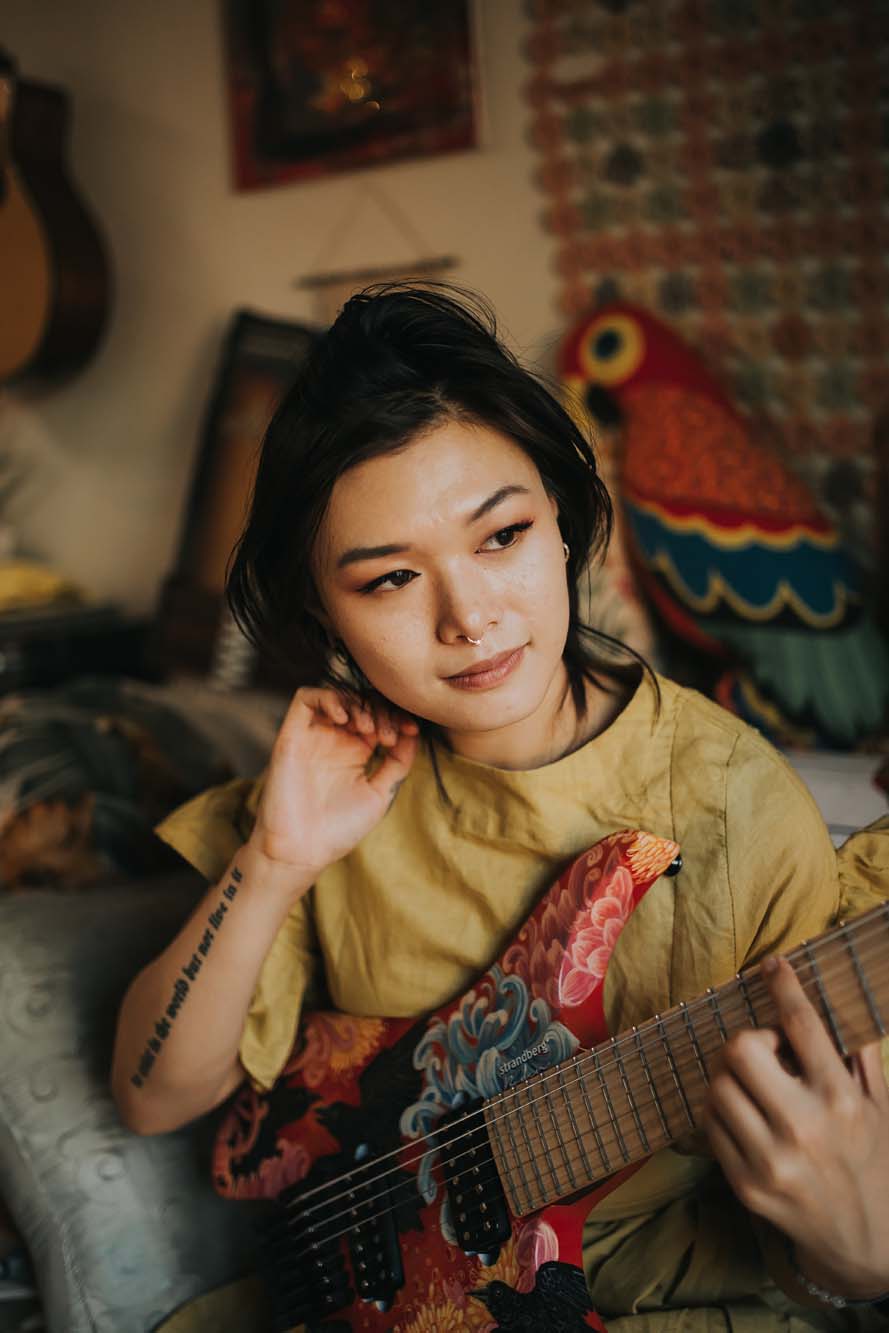
How does social media affect the way you’ve shared your music and built a fan base over the years?
I think my first thing was Facebook. A lot of people from certain music communities would add me and we’d nerd out over math rock bands. At the time, there weren’t a lot of people I knew who were into math rock locally, so online I got to meet a lot of people with the same obscure tastes and preferences. I met a lot of my best friends through online music communities, and I think it’s a great way to bring different people together. Instagram is my main jam these days. I use it to incentivize finishing songs. I’ll post a riff and then people will want to hear it as a full song. It’s a cool way to motivate myself to continue writing, and it’s a great way to keep track of my progress.
Recently my relationship with social media feels like work. It’s a double-edged sword: on one side it connects everyone, but also I’m so overwhelmed with being too easily accessible. It can be tiring and it gives me a lot of anxiety. I see things I don’t want to see, I get information I don’t want to get, that I never asked for.
You recently did some solo touring this past fall. How was your experience with that?
It was my first acoustic headliner and I didn’t know what to expect; I had such low expectations. People showed up and I was really moved. Some shows were sitting and everyone was really quiet. I had some shows where people weren’t too quiet, but I put on my best glare and hopefully they’d get the message.
How do you deal with situations where you’re playing really quiet music in a louder environment?
Usually I’ll talk really soft; it’s a classroom management technique. If you whisper, the kids will be quiet because they want to hear you. No one can ever fault you because you’re there to do your job and people paid money to come hear music.
I never get that problem with Covet though; we’re loud [laughs].
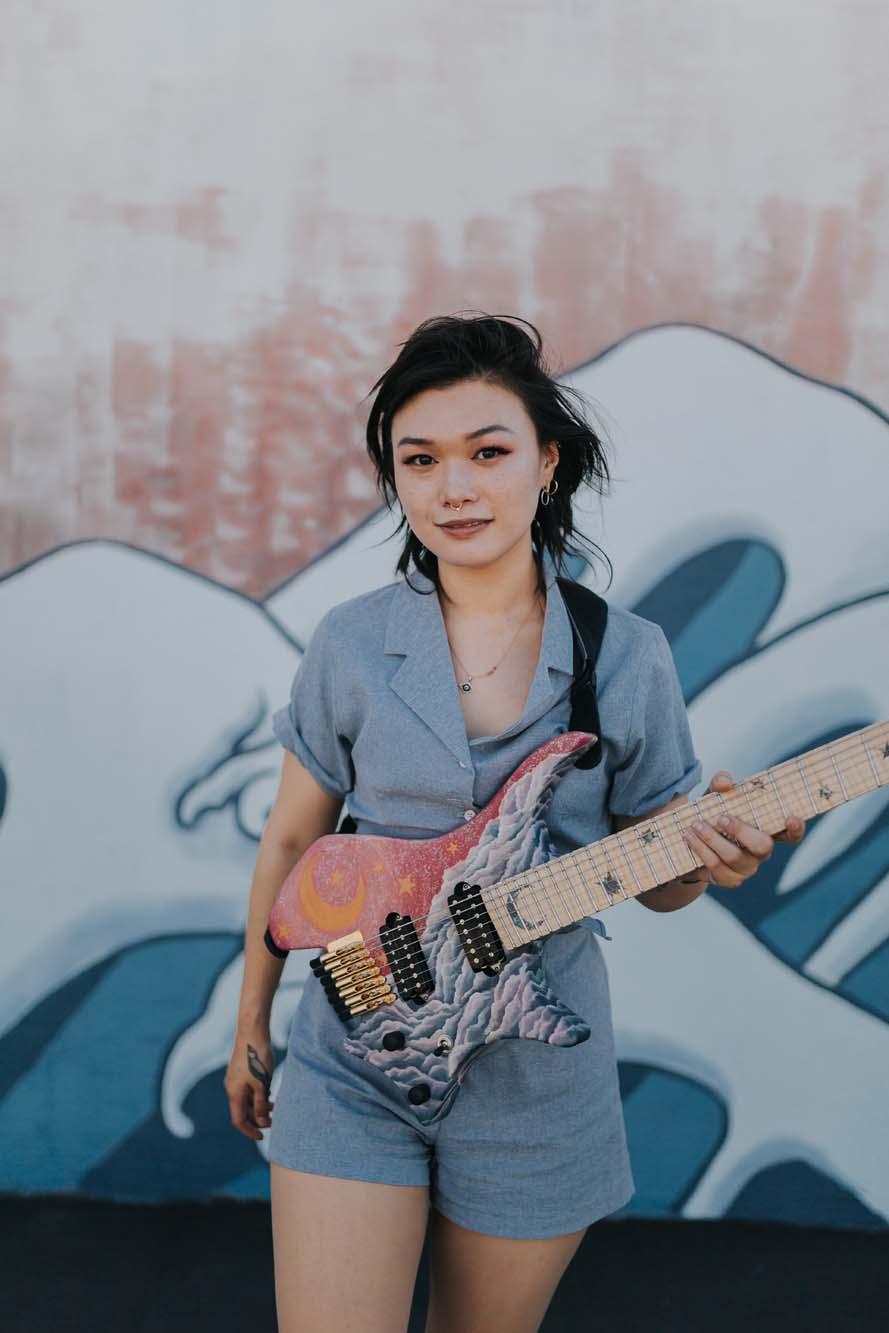
How does the new Covet record compare to other recordings or EPs that you’ve released?
All the other recordings were DIY. We were super broke at the time and recorded [the Currents EP] in a garage in San Francisco with help from our friend Nate Venarucci. Our friend Sean Lindeman mixed and mastered it. A fun garage band was my aspiration; I thought we’d play some local shows at most, but people seemed to really like it and we got a lot of support. I felt undeserving because I thought our recordings were so garage-y. Thanks to the support of all the people who bought the old record and our single, and the people who came out to shows and bought merch, we were able to fund our new record.
We recorded Effloresce at Vudu Studio. The quality of the recording, compared to older recordings, is night and day. We have a more professional recording, the songwriting has matured, and we feel a lot better playing with each other. It’s a more grown-up record than our old one.
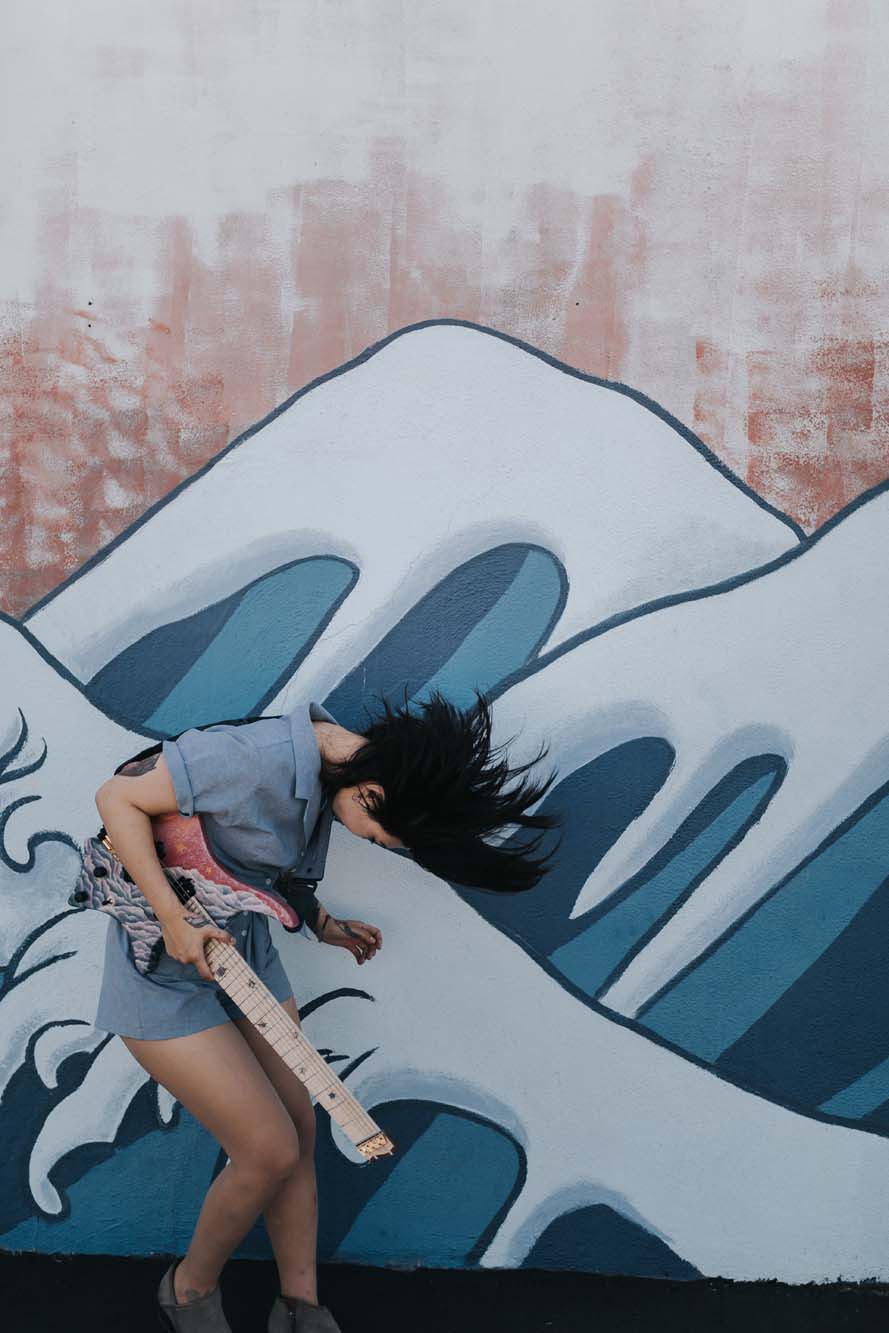
Listening to Effloresce, I notice a lot of beautiful dynamics that evoke so much emotion. Do you feel like your classical background influences that?
Absolutely. My sense of composition comes entirely from growing up with exclusively classical music. I used to listen to a lot of Romantic-era stuff, like Balakirev and Tchaikovsky. I really like Debussy, although I think he’s an Impressionist. Ravel is an Impressionist, that’s for sure; I really love Ravel. They can make stuff flow like water, and it waxes and wanes. Sometimes there’s a really dynamic, loud section contrasted with a really soft, delicate section. That’s what I try to emulate with guitar and rock music. That’s why I like post-rock, because it’s like classical music but with guitars.
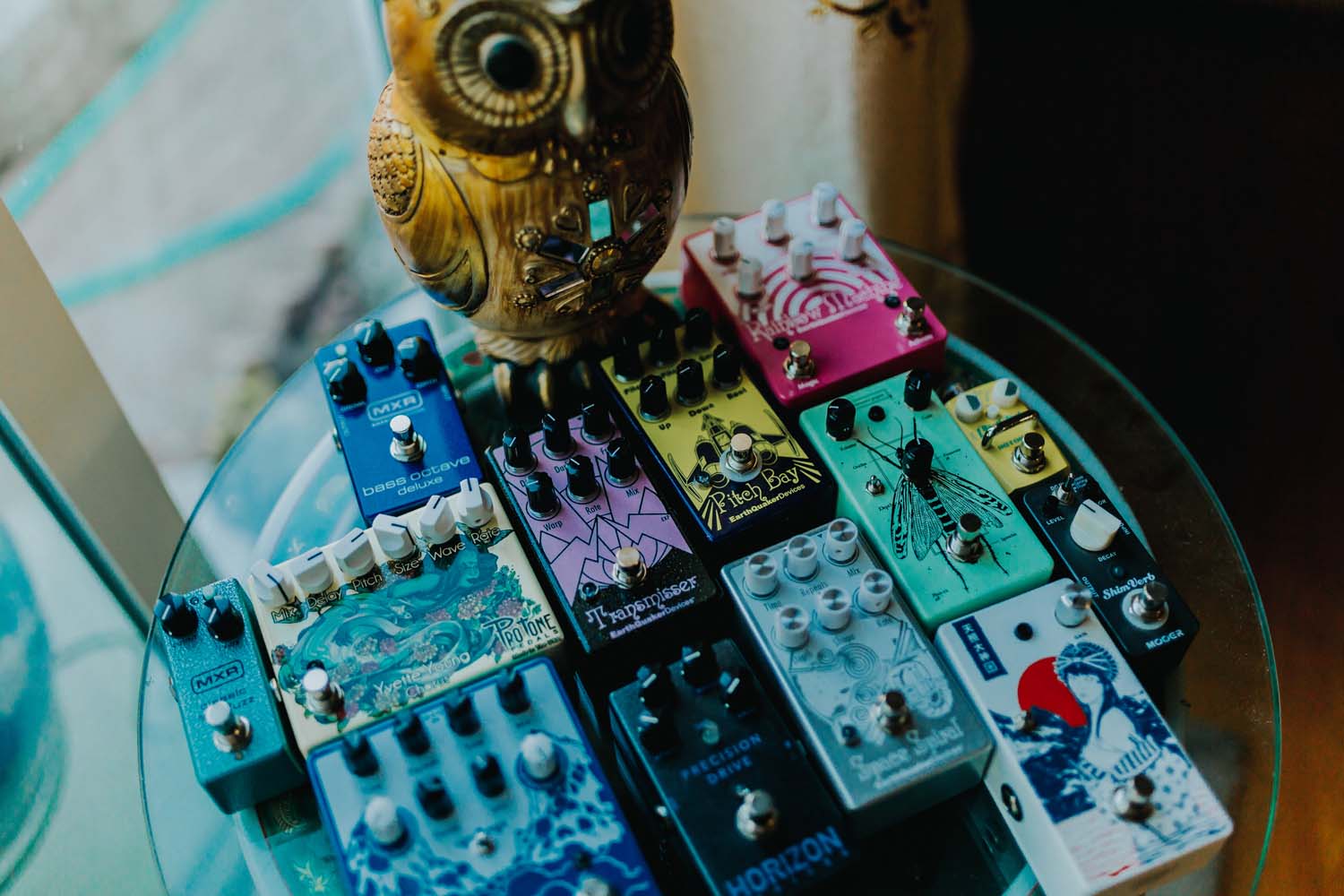
Can you talk about some of the gear and pedals that you use?
My favorite pedal on my board right now, and it’s kind of hard to not overuse it, is the Instant Lo-Fi Junky Vexter from ZVex. It’s great for adding warble and modulation to your sound so it sounds a little dated. I love stuff that sounds nostalgic; that’s why I like a lot of indie music, because some of it has that beachy, old vibe. I have this sick overdrive pedal made by Tonefield. They sent me the Klone; it’s great. I use that for heavy sections. My Earthquaker Warden optical compressor is essential. My style involves a lot of two-handed tapping and it can often be swallowed up in a live setting because certain frequencies compete with each other. But the compressor really helps sounds pop and there’s clarity in every note. It evens out my chord parts with the tapping parts so that nothing overwhelms anything else and gets all muddy.
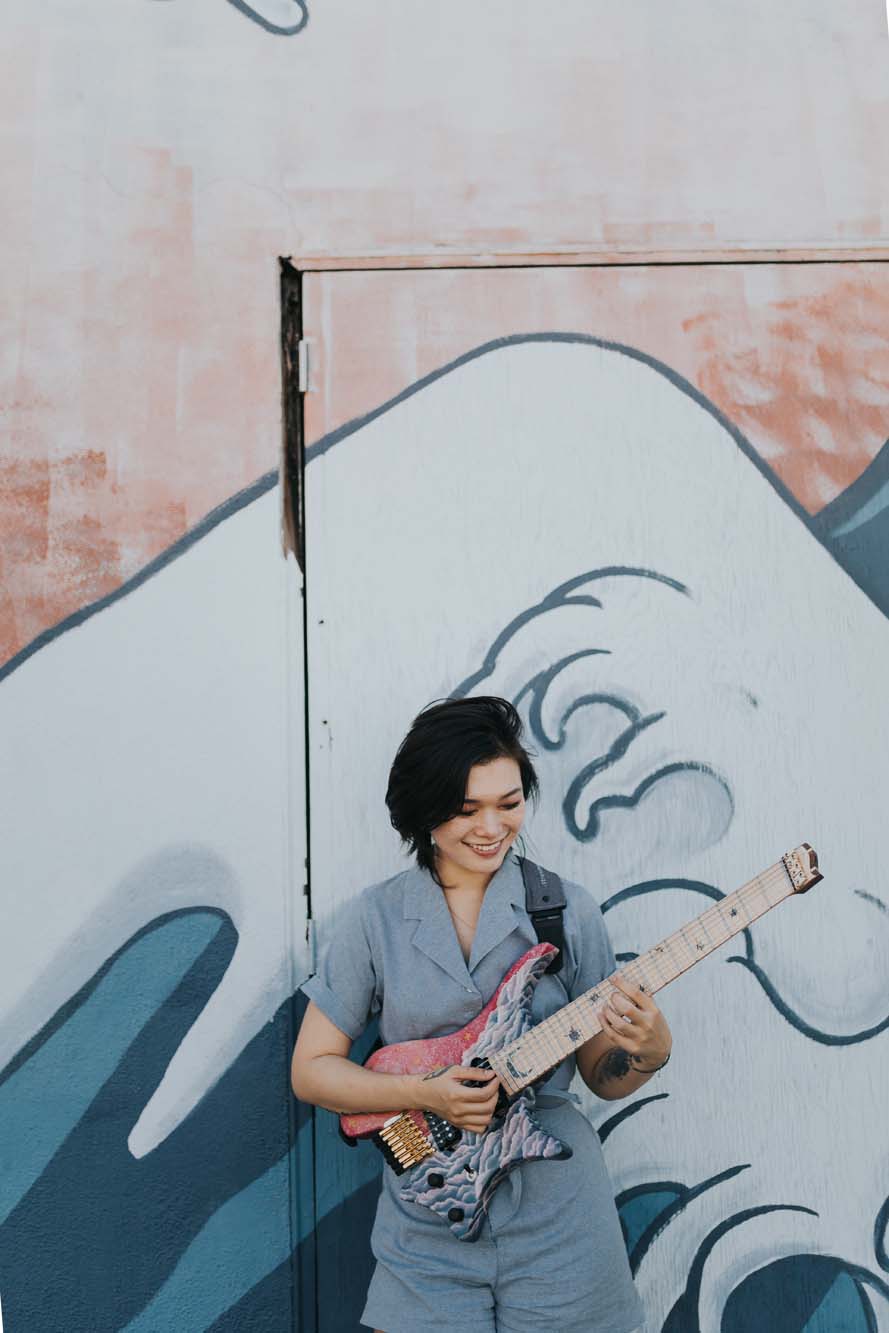
Would you have that compressor on your entire set?
I need it. Although I’d say I get my sound, that kind of distorted break-up, mostly from the interaction between my pickups and my amp. I play through a Vox AC30 on stage and it breaks up so nicely with my pickups. I set the master volume so that, if I want to play lightly, it’ll be clean, but if I dig in a little bit, it’ll break up and get dirty. So I really rely on that. Sometimes, if you do half-step stuff, it sounds really gnarly. I love that grossness.
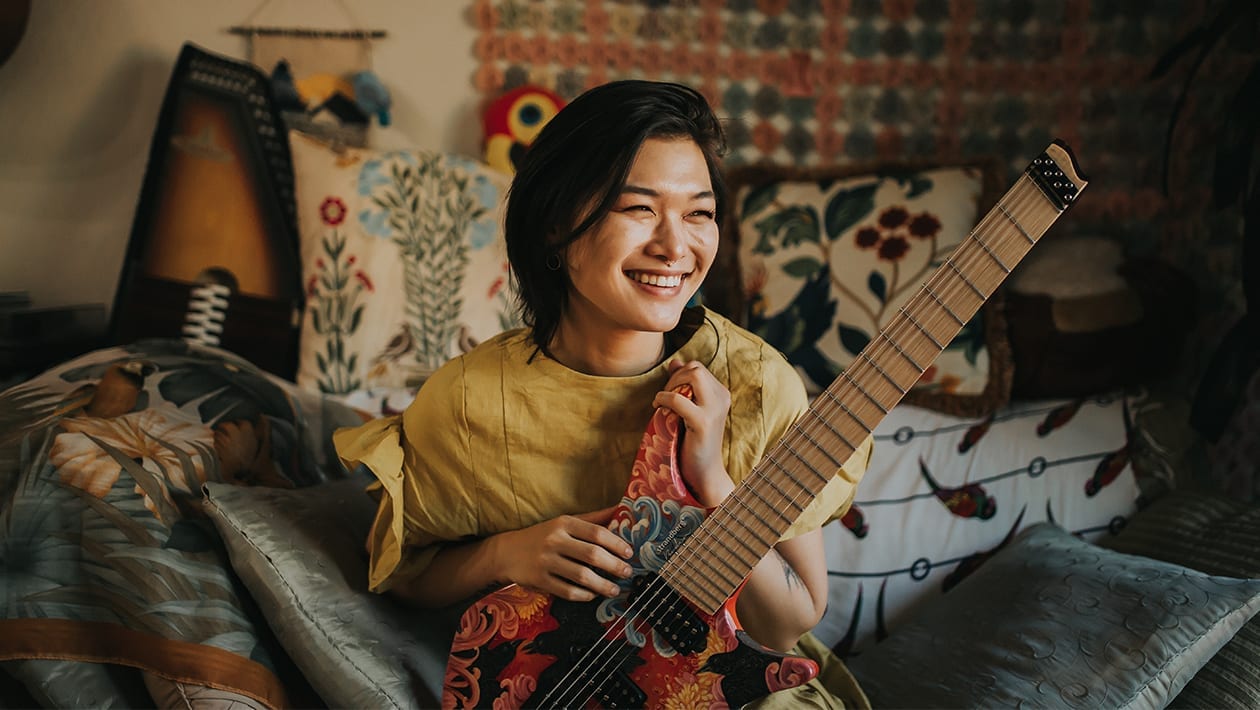

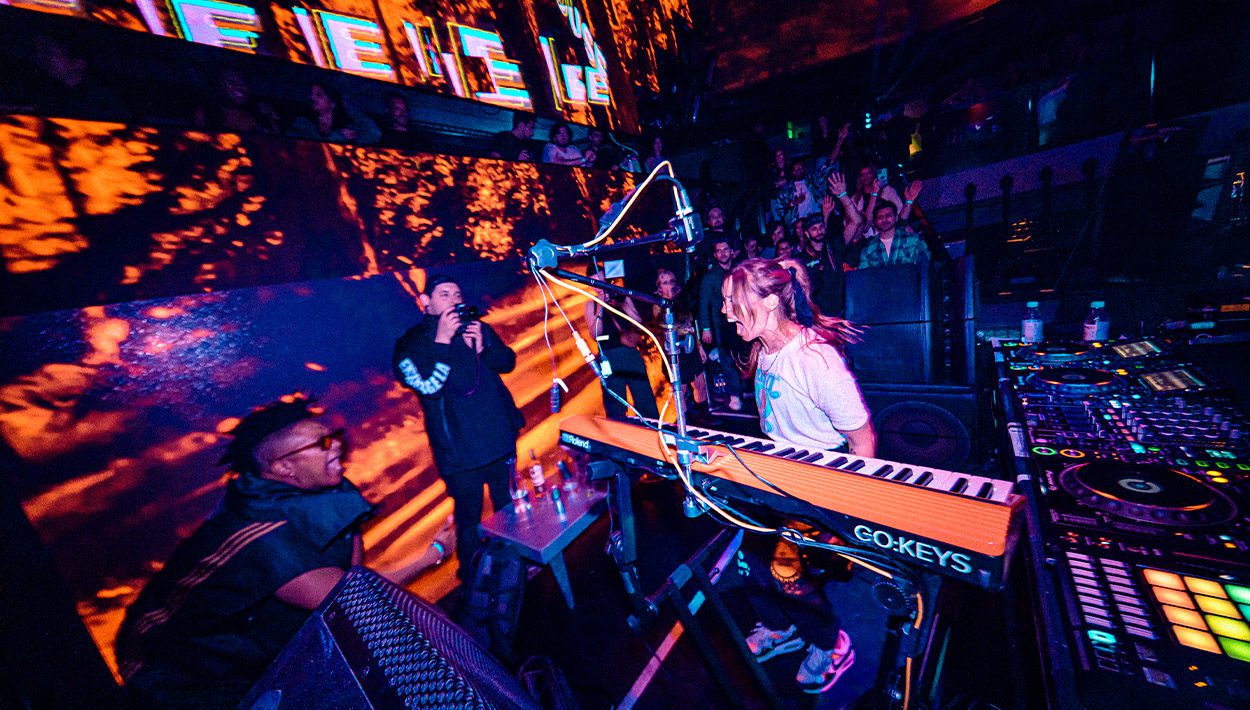
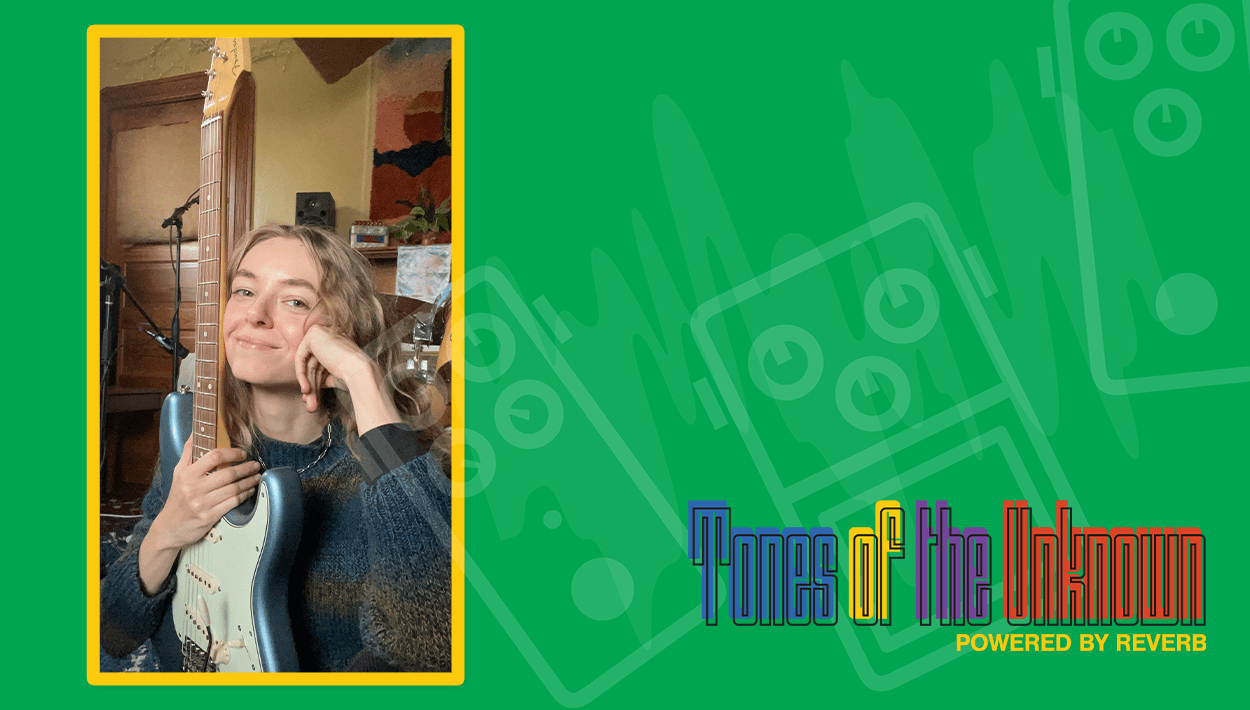
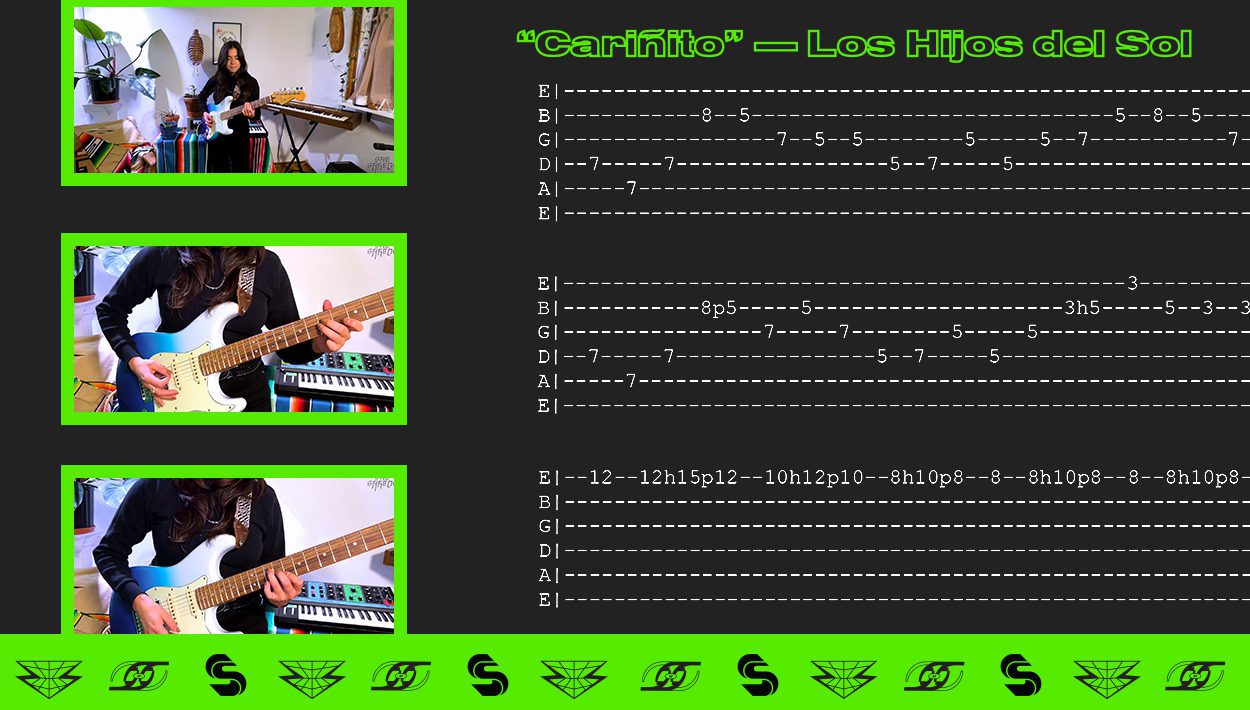
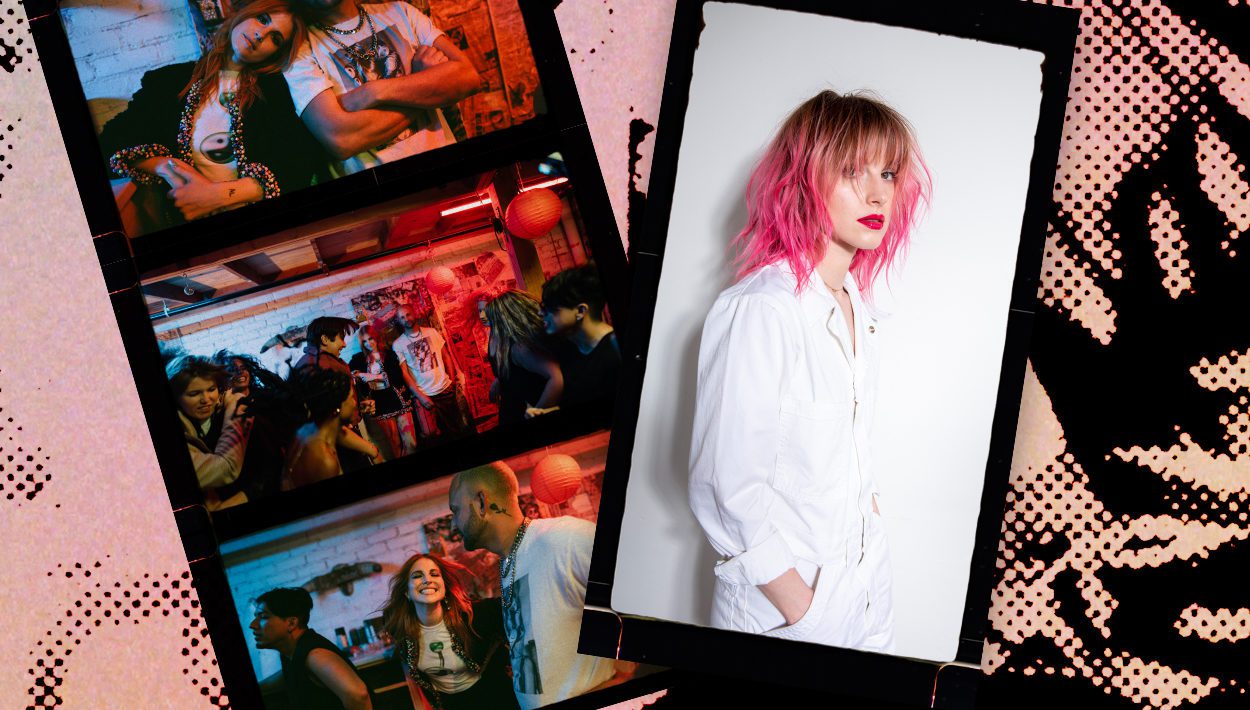
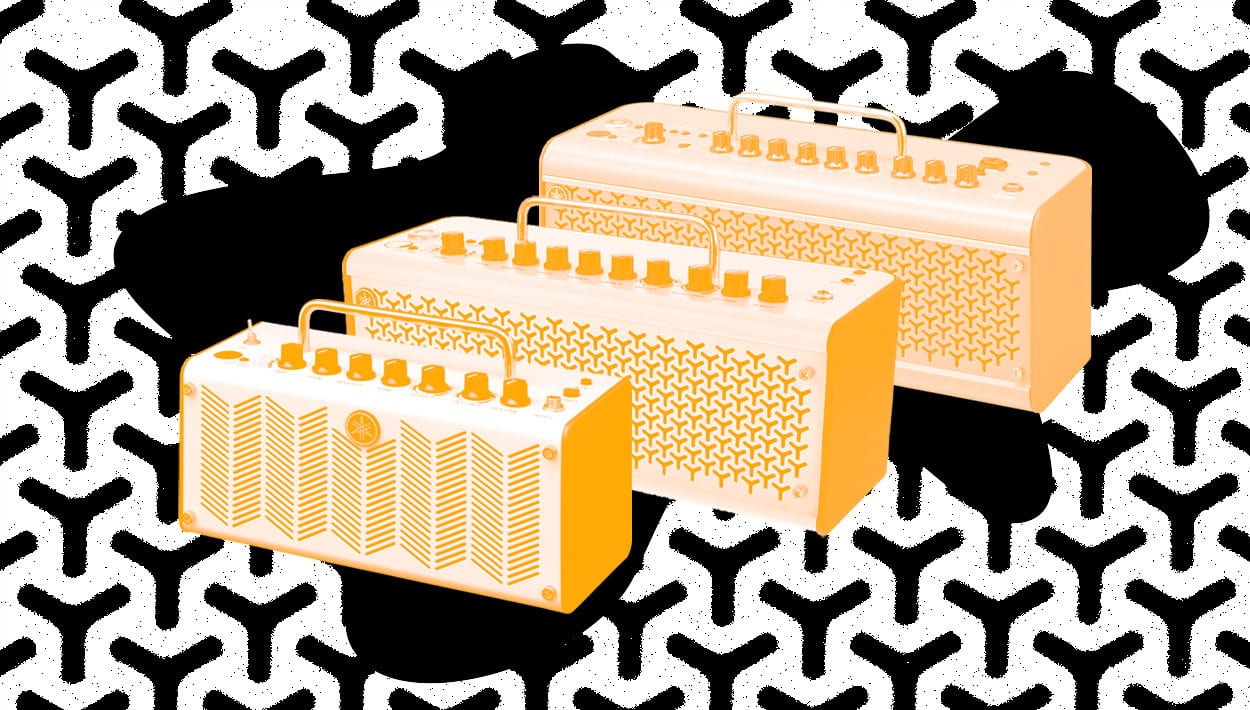
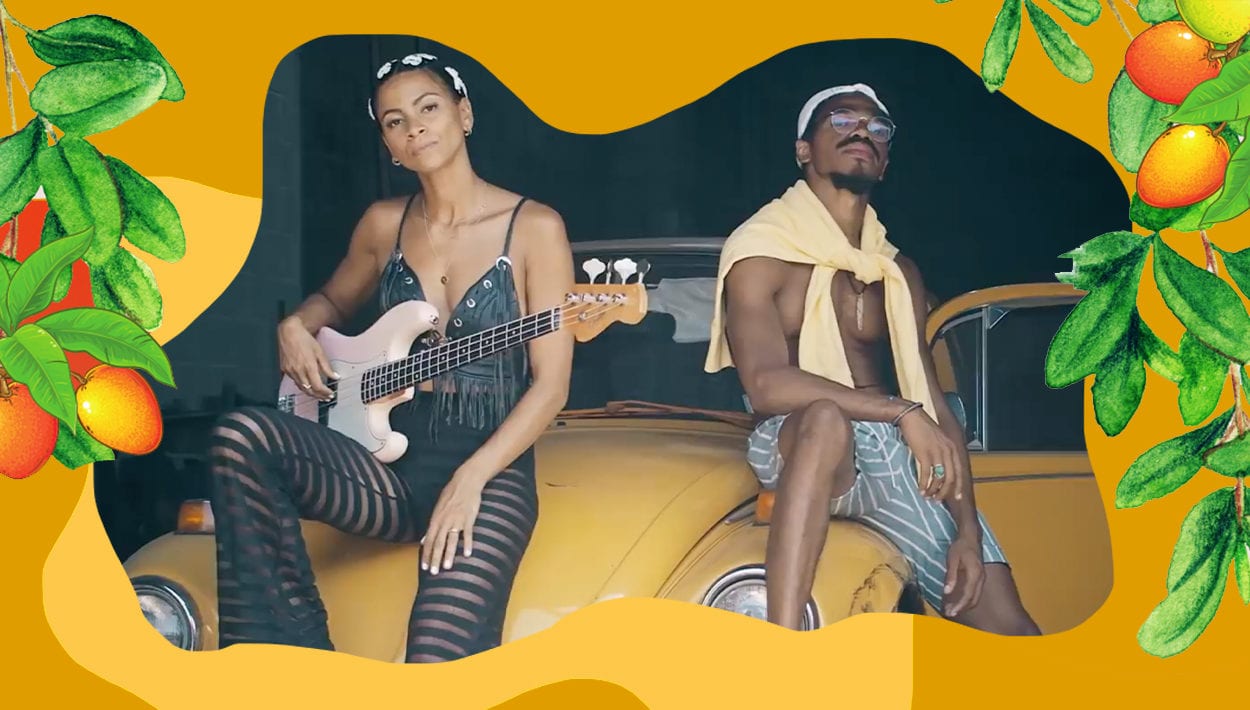
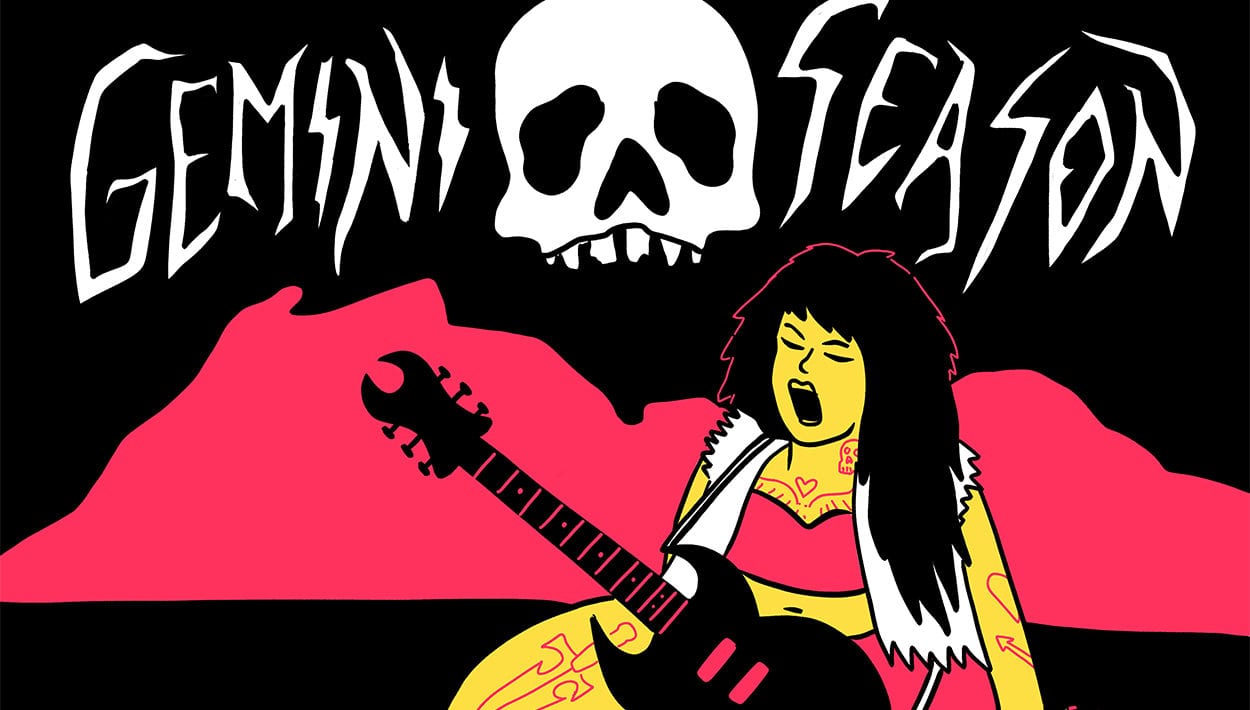
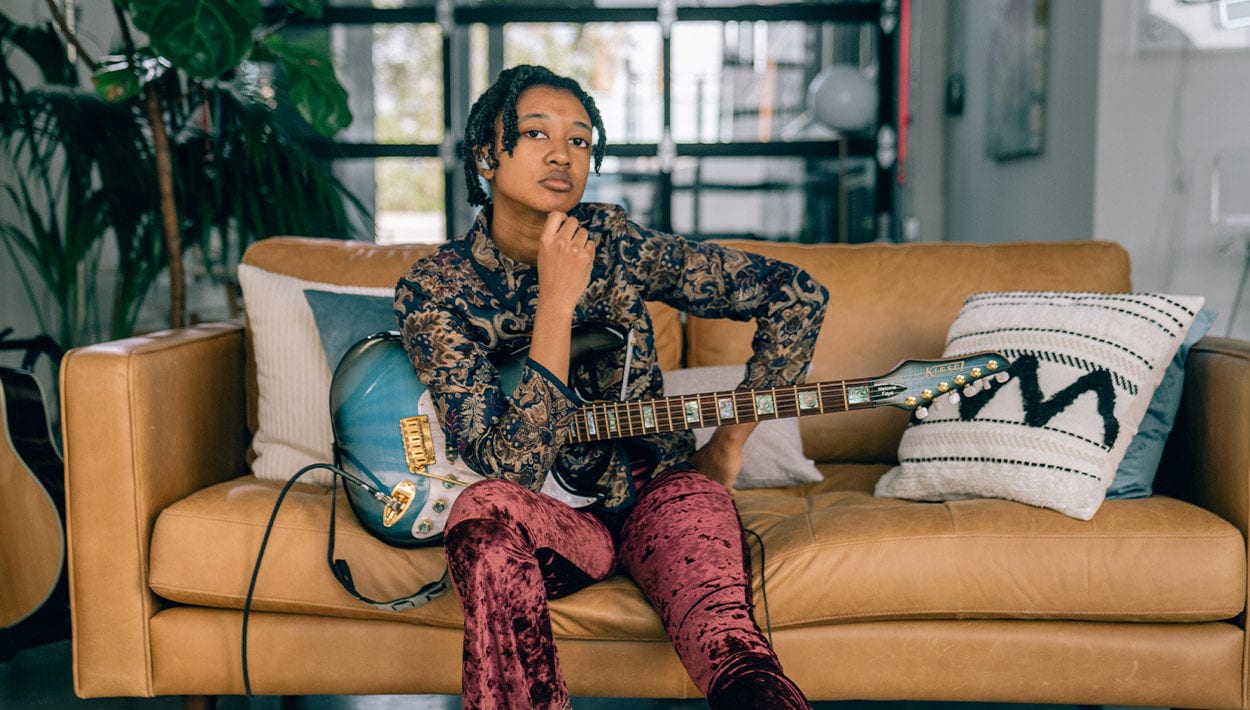
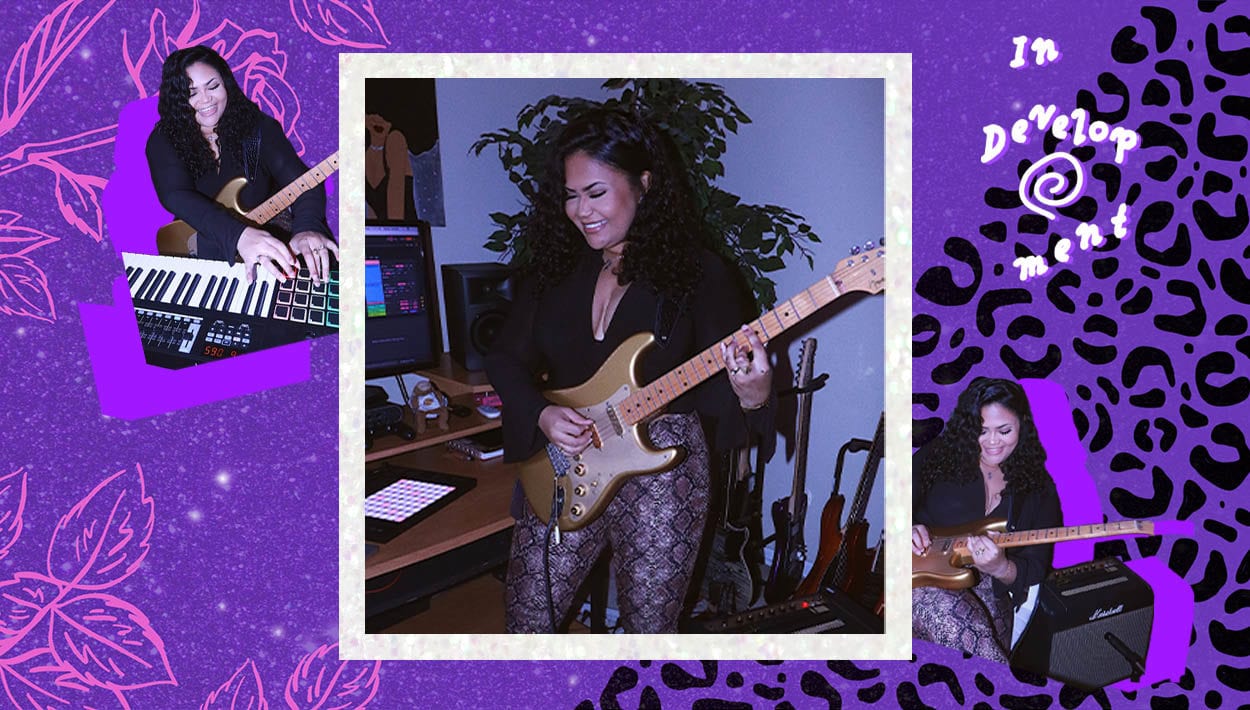
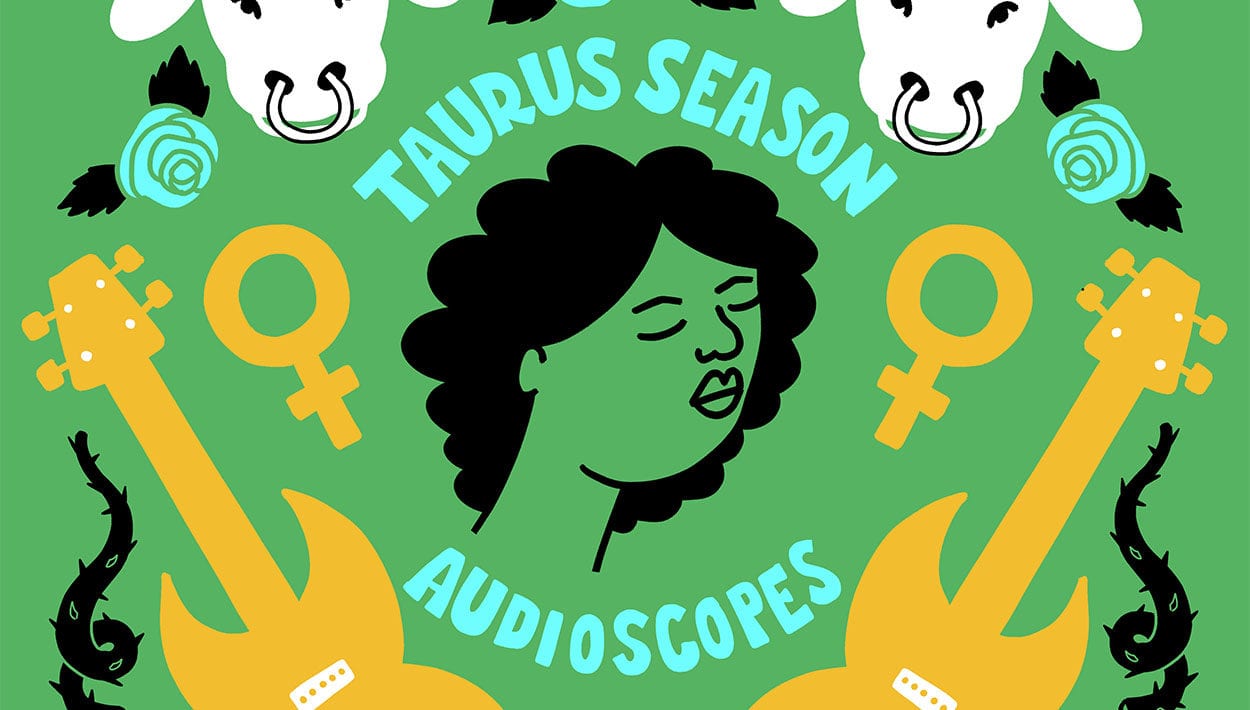


Comments
The piano is unique and special, thank you for sharing this article.
Comment by usps tracking on October 1, 2018 at 1:34 amhttp://uspstrackingmap.com
As for your knowledge here you will get the best online dice game that the people were playing from ancient time on board just visit here and play yahtzee online free with all unlocked level without any pay and app installation.
Comment by Himanshu mishra on October 2, 2018 at 10:31 pmI found a lot of interesting information here happy wheels
Comment by jedy mark on October 21, 2018 at 9:52 pm[…] classical music and post-rock is also an important aspect of what Young tries to emulate on guitar (source). Their complex and sophisticated sound is rounded out by David Adamiak on bass and Forrest Rice on […]
Pingback by Preview: Covet to perform at the TLA in Philly on Thursday, 11/1 | Rockin' The 'Burbs on October 29, 2018 at 8:14 amI jut found your music through a post on Reddit. It’s beautiful.
Comment by Ryan on October 23, 2019 at 4:04 pmBeyond the personal Mini Crossword growth and artistic fulfillment, Yvette Young’s guitar playing has brought her success in the music industry. Her skills and unique style have garnered attention and admiration from fellow musicians and fans worldwide.
Comment by abel1303 on May 19, 2023 at 8:22 pmYvette Young’s journey with the guitar is truly inspiring! If you’re looking to tell your own story through writing, consider partnering with a trusted ghostwriting company.
Comment by Harry Smith on September 25, 2023 at 2:47 pmYvette Young’s rediscovery through playing guitar beautifully mirrors the transformative impact of finding one’s passion. In a similar vein, if you’re navigating a career transition, consider enlisting a skilled resume writer Winnipeg. Just as Yvette found solace in her music, a professionally crafted resume can be your instrument for career harmony.
Comment by rechelmike on December 14, 2023 at 7:52 amThe game has a deep and mysterious story, combined with horror elements, creating a unique and engaging experience.
Comment by Five Nights at Freddy's on December 25, 2023 at 1:31 am